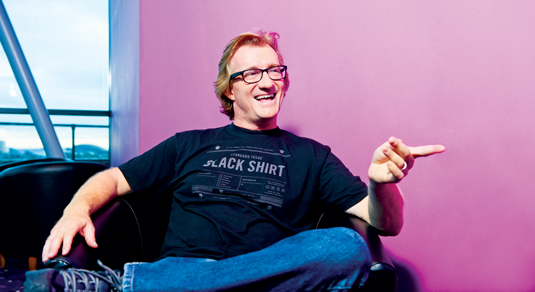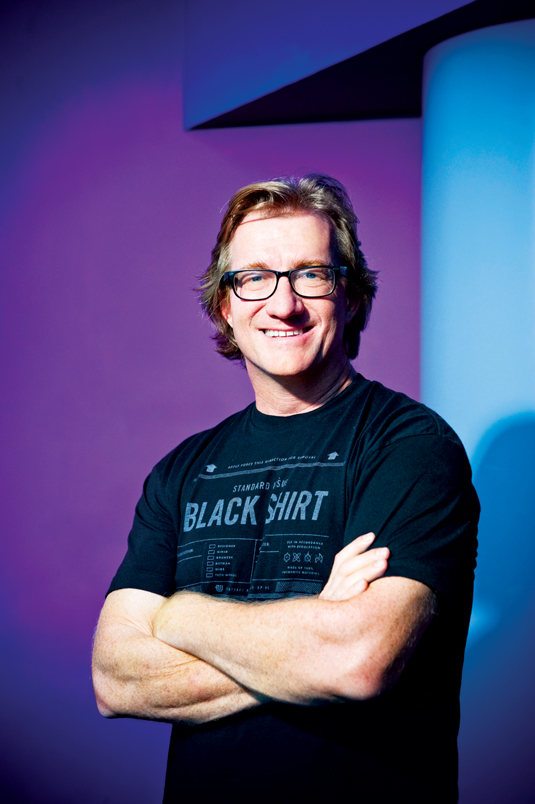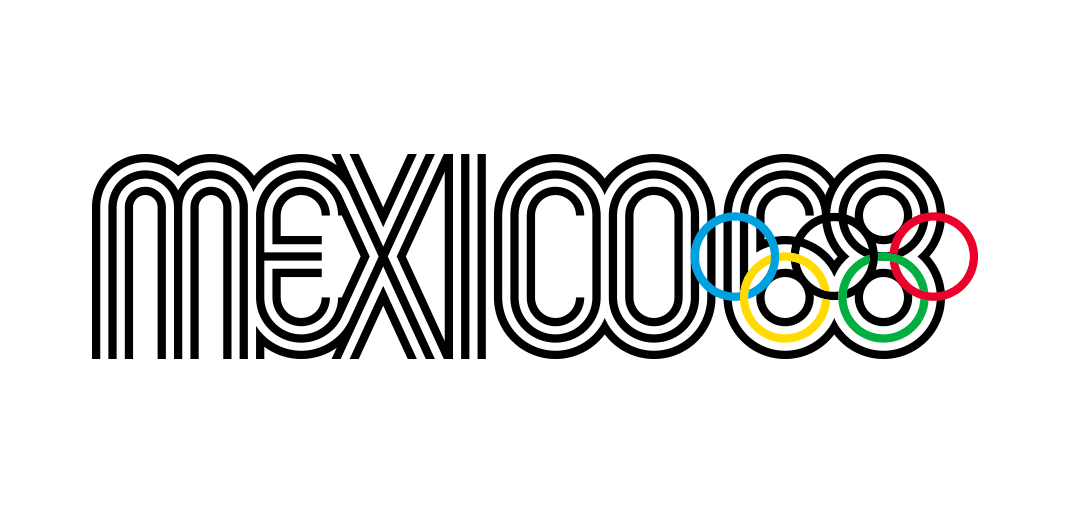Carl Smith on redefining identities and ideals
nGen Works’ Chief Keeper Upper tells us about his bold new business model.
Enter the code generate100 at the checkout by midnight EST today, 13 June, to get $100 off your ticket to Generate New York!
Carl Smith will be delighting the audience at Generate New York on 20 June by speaking about recapturing your youthful swagger in order to be a better entrepreneur.
"I think life is something you prototype, just like a developer would prototype an app, or a marketer would A/B test a design," he says. "I keep trying things I'm uncomfortable with, and sometimes it's a bloody mess, and sometimes, it's really, really awesome."
And for Smith, what's awesome for life is doubly so for his company. When he co-founded it in 2003, nGen Works was a relatively conventional web services agency. Today, it has a fully distributed core team of 12, working from both sides of the Atlantic, and surrounded by over 20 part-time contractors or 'friendgeneers': a structure Smith describes as the 'Jellyfish Model'.
Even more radically, nGen Works' company hierarchy is almost flat: the team decides collectively who to hire and which jobs it wants to take on. Smith describes his own role as more of a community manager than a boss. And now he's looking for other companies to join the revolution.
From act to reality
From the start, Smith's career followed an unconventional path. Having majored in theatre at college, he turned those skills to his advantage in unexpected ways.
During an internship at an ad agency, he decided simply to "act like I understood business". The strategy worked. Over the course of a 13-year career at Husk Jennings, Smith rose to be senior vice president in charge of media, the company's accounts service, technology, "and whatever else I'd gotten upset about and they'd told me I could do".
"Then one day, when my wife was pregnant with our second child, she told me that she didn't like me any more: that I was miserable, and that I needed to do something new," he says. "I had always built business models when I was frustrated at work, so I went and took one of them down. The one I took down was nGen Works."
When my wife was pregnant, she told me she didn't like me any more and that I needed to do something new
The basics of that business plan were simple: to be nice when you answered the phone and to do what you said you were going to do. "I thought if we did that, we would rule the world - because nobody in web services did that," Smith says. "They would take a cheque and disappear. Or they would get frustrated and mad at you."
Initially a Flash shop, nGen Works soon established a steady pool of clients, both locally and internationally, shifting over to standards-compliance as the market changed. Its own visibility went
international with the launch of Happy Webbies, an online store selling T-shirts and desktop wallpapers bearing affectionate parodies of industry figures such as Jeffrey Zeldman and Jakob Nielsen.
"We took the people who were on our bookshelves and made fun of them, basically," says Smith. "As a result, they all got in touch with us. Suddenly, we were really well respected ... much ahead of our quality level at the time. We were like, 'Damn, we'd better get good fast, because everybody's looking.'"
From local to distributed
The decision to move from a local to a distributed team was equally serendipitous. Needing to hire a heavy hitter after co-founders Varick Rosete and Travis Schmeisser left the company, Smith contacted UX designer Jeff Croft, then working for Blue Flavor. Croft was interested, but didn't want to move to Florida. Once Croft began working remotely, other staff members followed his lead, and suddenly Smith was left as one of nGen Works' few remaining Jacksonville-based staff members.
The transition was the making of the modern nGen Works. "Once we realised the model was working for us, we could work with anyone we liked," says Smith. "We call it the 'army of awesome'. When we have a new project, we can just reach out to people we already know. We could hit close to 120 if we were to get everyone we've talked to active."
To describe this new structure, Smith hit on the 'Jellyfish Model' term. "Jellyfish are truly the most effective distributed team on the planet," he said in a recent blog video. "They live in the coldest waters as well as the warmest. They show up whenever the ocean is compromised and clean it up. They're true problem-solvers, grow to the size of the problem, and when the problem is solved, they go away."

From hierarchical to flat-ish
However, nGen Works' latest - and most radical - organisational change was entirely premeditated. Prompted by the crazy wisdom of fallen TV star Charlie Sheen, Smith decided to make lists of everything he liked about his job, and everything he didn't - then simply try to stop doing anything on the second list.
With tasks on that list including 'hiring people', 'project management', and 'new business', it was clear that a less hierarchical company structure was going to be necessary. However, Smith stops short of calling the new arrangement 'flat'.
"The term 'flat' is really misrepresented," he says. "There's always some form of leadership, even if it only comes from whoever owns the organisation. What we now have is groups that form temporary hierarchies to accomplish tasks."
There's always some form of leadership, even if it only comes from whoever owns the organisation
Smith calls this an 'opt-in' structure. "People ask how things get done if nobody's in charge," he says. "And that's the thing: nobody's in charge of everything, but different people are in charge of aspects of what we do."
By relying on staff to organise themselves into appropriate groups to tackle particular projects, nGen Works' opt-in structure blurs the lines between conventional job roles.
"We do have traditional skills - hardcore backend developers, product managers, content strategists - but [the new structure also gives people the opportunity to contribute in new ways]," says Smith.
"The thing I'm proud of is when I sit in on a meeting on launch ideas for a new product, and one of the developers says, 'Wouldn't it be great to create a new social area for all of these targets to get together and talk?'"
These new hybrid roles are reflected in nGen Works staff's job titles, which include such exotic-sounding aliases as 'The Cleaner', 'The Mobilizer', and 'Concept & Executioner'. Smith's own title is 'Chief Keeper Upper'.
"Coming up with your own title and defending it to the team is a big part of joining nGen Works," says Smith. "I think it's a wonderful introduction for somebody new, because they're explaining who they are, what they believe, and why they think they're going to be a fit."
As well as deciding upon its own job roles, the team is responsible for hiring new staff and setting starting salaries.
"It's still my responsibility to make sure that everyone is in a position to succeed, but [as] owner, the person who is furthest removed from what is really going on, [I'm] the last person who should make hiring decisions," says Smith. "The team are in there day to day, and they know who bailed their asses out the night before."
As well as ensuring that nGen Works only recruits people with whom existing staff can work well, this reversal of HR responsibilities helps foster a sense of group loyalty. "If you know the other people on the team went to bat to get you there, you don't want to let them down," observes Smith.
Fostering ambient accountability
This is particularly important in an organisation where checking whether your colleagues are putting in the hours is not as simple as seeing whether they turn up to the office on time.
"When everyone is watching, the sense of accountability [to other people] is super-strong," says Smith. "But when you're off on your own - as in a distributed team - you may act totally differently," he adds.
Instead, Smith describes the sense of responsibility that staff feel to one another within nGen Works as one of 'ambient accountability'.
"If you're all working together towards a common goal, which is to build cool stuff for nice people, you have to protect that together," he says. "With ambient accountability, you can see who is and who isn't pulling their weight. The team can patrol the team."
Since nGen Works staff log the hours they work on each project publicly, those with heavy workloads feel empowered to ask those logging fewer hours to step in and help. If they do, the imbalance corrects itself. If not, and what Smith describes as a "tough conversation" is required, at least everyone is aware of what led up to it.
"If [the boss has] to step in and say, 'I'm sorry, you have to leave,' that's horrible for a culture," he points out. "But if the whole team gets to watch how things build up, when somebody leaves, or takes a step down [to friendgeneer], no one is surprised. There isn't a closed door, then somebody packing up their desk."
The principle of transparency also extends to nGen Works' finances. In order to enable staff to make informed decisions about which jobs to take on, anyone on the team can call Smith at any moment to find out how much the company has in the bank: information he contextualises by explaining how many weeks' salaries this will pay.
He says, "Ultimately, this is all about putting food on the table. Sometimes, it's slop, and sometimes it's steak. But if you don't know the health of the company, you can't make those decisions."

Learning from conflict
Smith admits that this new balance of power has taken some adjusting to. In a session at HybridConf that preceded the photo shoot for this article, he described getting "destroyed on Basecamp" by an nGen Works developer for contacting a client to recommend limiting the costs of a project without letting the team know in advance.
Smith subsequently organised a company-wide Skype call to discuss the matter, which led to both parties apologising: Smith for going behind the team's backs; the developer for the way he had handled the situation.
It's been a rollercoaster ride the whole time, but I'm really excited about it
Yet, despite the ups and downs, Smith describes the move from a conventional managerial role to one more akin to a community manager as being mutually beneficial. The team benefits from having more autonomy; Smith benefits from having to spend less time completing tedious administrative tasks. And everyone benefits from the freedom to take on the projects that they most want to do, rather than those that simply maximise profits. "It's been a rollercoaster ride the whole time, but I'm really excited about it," he says. "It's just an amazing idea, not to have a boss," says Smith.
Join the Jellyfish Alliance
And now, Smith aims to apply the same principles that have governed nGen Works' internal changes in organisational structure to the way it relates to its competitors.
"There's safety in numbers," he points out. "If you look at the Googles and Microsofts and Apples of the world, those guys are just going to keep sucking up people. As [Facebook's Mark] Zuckerberg said, 'The only thing I'm missing is bodies'. But believe it or not, there are people who don't want to live in San Francisco. I'm one of them: I want [to keep this] beautiful walk to work through the park where I'm not crowded by 28,000 people. And to do that, I have to have enough other people I can work with."
Smith calls what he is proposing the 'Jellyfish Alliance': a loose network of like-minded agencies that can come together to work on larger projects, in much the same way that nGen Works' friendgeneers can come together to work on individual jobs.
The first official member of the alliance is Saint Louis-based agency NightOwl, but Smith says that he is currently in touch with "10 to 15" other small companies.
"It doesn't have to be a financial deal, or an equity deal; it can be a true partnership," he says. "I'm not worried about the profit level, or what the return on investment is going to be.
"Let's just get together and do something great, and it'll all come back to us. That's what we were told in Sunday school, right? And the reality is, that stuff works."
A wave of change
Ultimately, Smith hopes that the foundation of the Jellyfish Alliance will catalyse a wave of change throughout the industry, rendering such formal alliances obsolete.
"I'd love it if we could set the tone and other companies would just start partnering that way. We have to let down our shields. We're building the future: there's going to be plenty of work. Let's just find a way to do it together," he concludes.
Enter the code generate100 at the checkout by midnight EST today, 13 June, to get $100 off your ticket to Generate New York!

Thank you for reading 5 articles this month* Join now for unlimited access
Enjoy your first month for just £1 / $1 / €1
*Read 5 free articles per month without a subscription

Join now for unlimited access
Try first month for just £1 / $1 / €1
Get the Creative Bloq Newsletter
Daily design news, reviews, how-tos and more, as picked by the editors.

The Creative Bloq team is made up of a group of art and design enthusiasts, and has changed and evolved since Creative Bloq began back in 2012. The current website team consists of eight full-time members of staff: Editor Georgia Coggan, Deputy Editor Rosie Hilder, Ecommerce Editor Beren Neale, Senior News Editor Daniel Piper, Editor, Digital Art and 3D Ian Dean, Tech Reviews Editor Erlingur Einarsson, Ecommerce Writer Beth Nicholls and Staff Writer Natalie Fear, as well as a roster of freelancers from around the world. The ImagineFX magazine team also pitch in, ensuring that content from leading digital art publication ImagineFX is represented on Creative Bloq.
